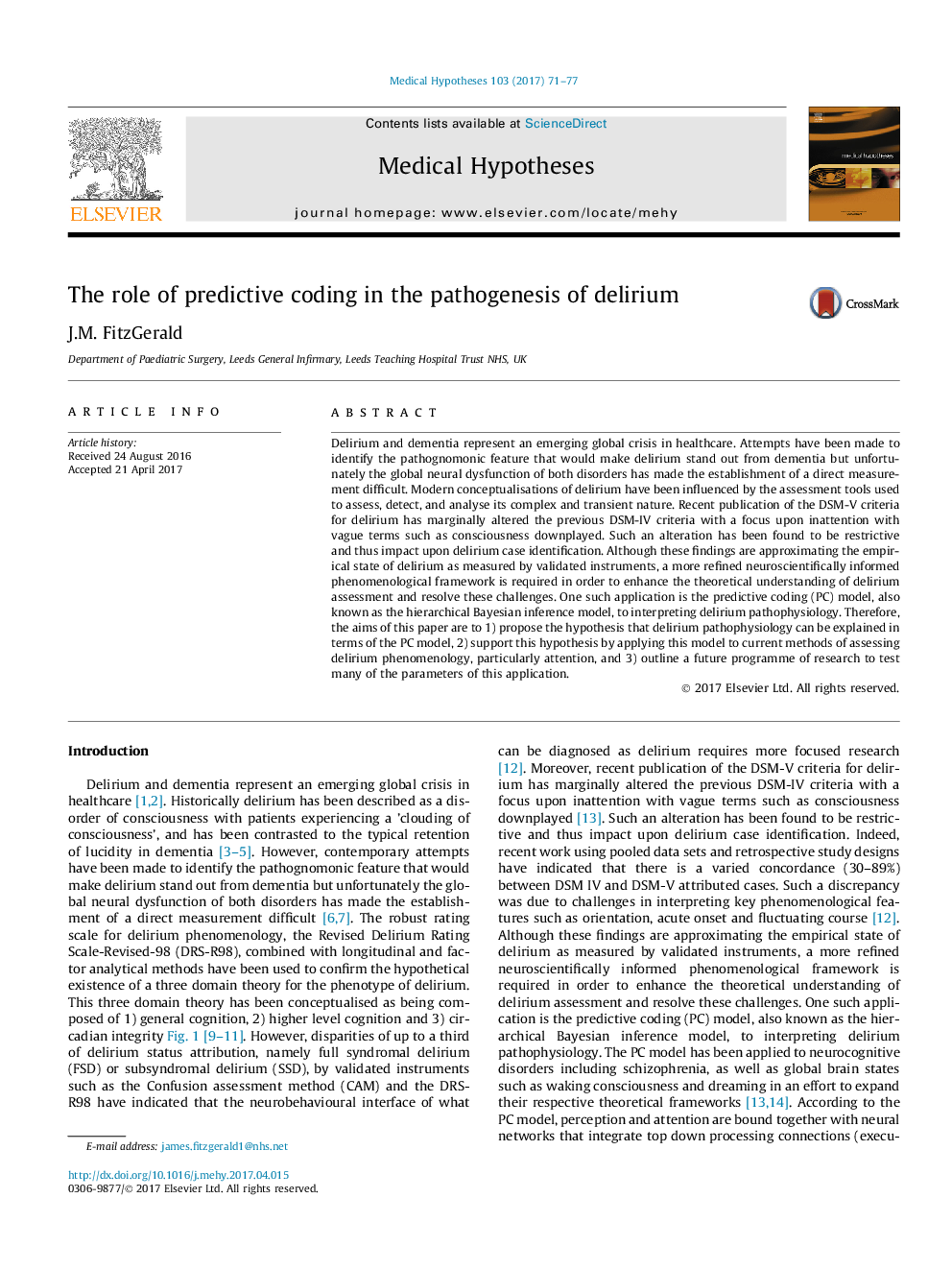| کد مقاله | کد نشریه | سال انتشار | مقاله انگلیسی | نسخه تمام متن |
|---|---|---|---|---|
| 5548446 | 1556542 | 2017 | 7 صفحه PDF | دانلود رایگان |
Delirium and dementia represent an emerging global crisis in healthcare. Attempts have been made to identify the pathognomonic feature that would make delirium stand out from dementia but unfortunately the global neural dysfunction of both disorders has made the establishment of a direct measurement difficult. Modern conceptualisations of delirium have been influenced by the assessment tools used to assess, detect, and analyse its complex and transient nature. Recent publication of the DSM-V criteria for delirium has marginally altered the previous DSM-IV criteria with a focus upon inattention with vague terms such as consciousness downplayed. Such an alteration has been found to be restrictive and thus impact upon delirium case identification. Although these findings are approximating the empirical state of delirium as measured by validated instruments, a more refined neuroscientifically informed phenomenological framework is required in order to enhance the theoretical understanding of delirium assessment and resolve these challenges. One such application is the predictive coding (PC) model, also known as the hierarchical Bayesian inference model, to interpreting delirium pathophysiology. Therefore, the aims of this paper are to 1) propose the hypothesis that delirium pathophysiology can be explained in terms of the PC model, 2) support this hypothesis by applying this model to current methods of assessing delirium phenomenology, particularly attention, and 3) outline a future programme of research to test many of the parameters of this application.
Journal: Medical Hypotheses - Volume 103, June 2017, Pages 71-77
